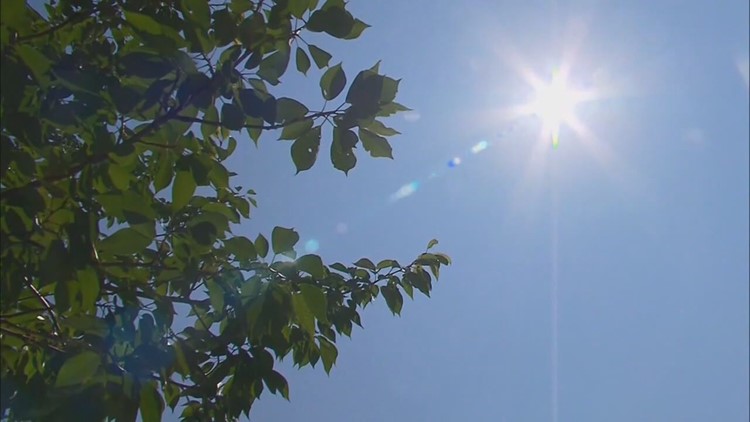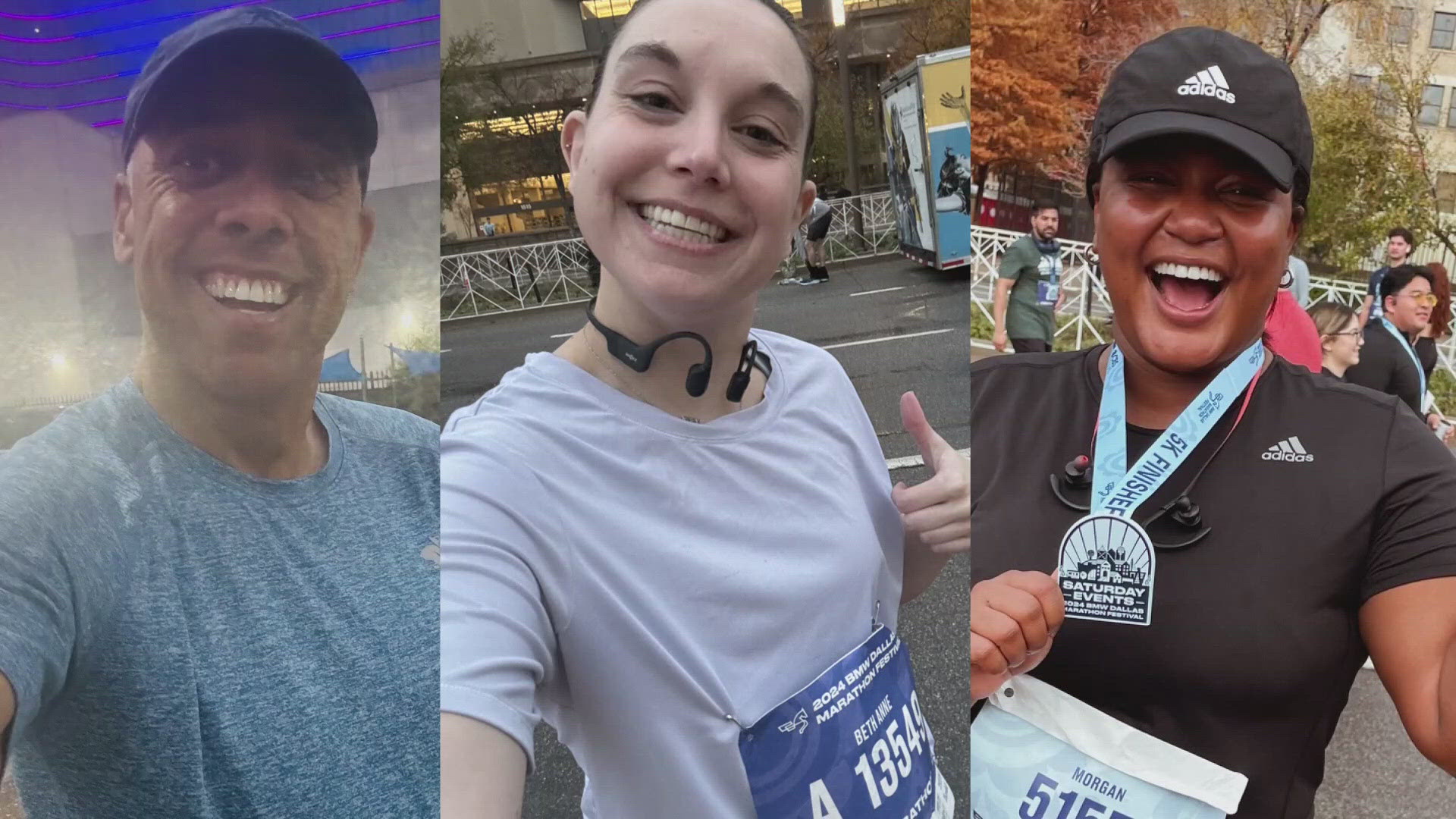FORT WORTH, Texas — Tarrant County has reported at least four heat-related deaths so far in July as the scorching summer continues.
The Tarrant County Medical Examiner's Office released a summary of deaths due to hyperthermia this summer since May 1, 2023. All the reported deaths occurred in the month of July.
According to the report, the deaths were recorded as followed:
- July 2 - 26-year-old man who was working outdoors
- July 3 - 74-year-old man with no working A/C
- July 8 - 79-year-old woman with no working A/C
- July 17 - 77-year-old woman who was working outdoors
The medical examiner said the number of heat-related deaths could change as the office awaits further lab tests and investigations on other cases.
So far in July, there have been 14 days with temperatures at or above 100 degrees that were recorded at Fort Worth Meacham Airport. The hottest temperature was 110 degrees on July 18.
The Tarrant County area has also dealt with several excessive heat warnings through the month.
Under these warnings, the county could expect to see heat index values, or feels-like temperatures, above 110 degrees. The highest heat index recorded this month was 116 degrees.
During the summer heat in Texas, it's important to know the signs of heat-related illnesses:
Heat cramps
- Often the first stage in a heat emergency
- Symptoms include muscle pain and tightness
- Rest in a cool place and drink something with electrolytes and salt or cool water to replenish your body
Heat exhaustion
- Heat exhaustion can send patients to the hospital and happens when someone loses large amounts of water and salt due to excessive sweating, especially from physical labor or exercise, according to MedStar officials.
- The loss of fluids can interfere with your body's circulation and brain function
- Symptoms of heat exhaustion can include heat cramps, paleness, clammy skin, heavy sweating, weakness, dizziness, fast or weak pulse, fatigue, headache, nausea, vomiting, fainting
- If someone is experiencing the signs of heat exhaustion, have them move to a cooler location, lie down, remove or loosen clothing, and apply cool and wet cloths to their body. Have them sip water as well.
Heat stroke
- This is the most serious heat-related illness and can happen in less than an hour, according to MedStar officials, especially if you are participating in strenuous activity. It can be life-threatening.
- Heatstroke happens when someone's body is no longer able to cool itself after long, intense exposure to the heat.
- Symptoms include the absence of sweating, hot/dry/red skin, pulsing headache, strong or rapid pulse, confusion, vomiting, shortness of breath, body temperature at 104 to 106 degrees, seizure activity, unconsciousness
- If you believe someone has heatstroke, call 911 right away.
- Check them for a pulse and watch their breathing, start CPR if necessary.
- Move them to a cooler location, have them lie down or sit under a fan, apply cool and wet cloths or ice packs to their body.
How to prevent heat exhaustion or heat stroke
- Hydrate: MedStar officials say you should make sure to drink plenty of water throughout the day, especially if doing any outdoor or strenuous activities.
- Ventilate: Stay somewhere cool during the day with plenty of airflow. If indoors without air conditioning, MedStar officials say to make sure you open the windows and turn on a fan.
- Cover Up: While it might seem counterintuitive, covering up with loose-fitting and light-colored clothing can actually keep you cooler. How? The clothes and a hat can help shield you from absorbing the heat of the sun. Once you feel yourself getting warm though, you should remove a hat or any items from your head that could trap your body heat.
- Limit Activity: Try not to engage in strenuous activity for long periods of time outside on a hot day and take frequent breaks in a place out of the sun while you do. Make sure to drink water before, during and after your time outside as well.
- Check on Loved Ones: Children and elderly people are especially vulnerable to high heat, but they might be unaware of hot it is around them, so be sure to check in on them regularly to make sure they're OK.



